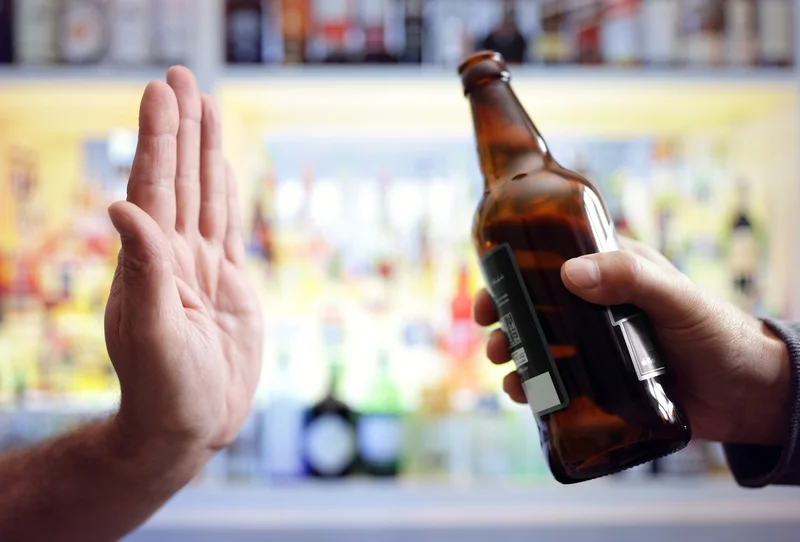
This process involves the complete elimination of alcohol from the body, aiming to manage and alleviate withdrawal symptoms that arise when an individual ceases alcohol consumption. If you get withdrawal symptoms, you will need medical support to help you reduce and stop your drinking. That will help you decide on the best plan to stop drinking, with support which can include specific prescription medication to https://ecosoberhouse.com/ take during your withdrawal. This sort of medication can be essential for people with severe alcohol dependence, to avoid the danger of having a seizure during withdrawal, which could result in permanent injury or death. Short-term success rates for alcohol detox are high, with most individuals completing the process when under medical supervision.
Contact Vertava Health
Even just one bout of drinking too much may weaken your body’s germ-fighting power for up to 24 hours. Over time, large amounts of alcohol blunt your immune system and your body’s ability to repair itself. By Sarah Bence, OTR/LBence is an occupational therapist with a range of work experience in mental healthcare settings. Behavioral health treatment for alcohol problems is often (but not always) covered by insurance. In the United States, most states have low-cost or free rehabilitation programs for those who are uninsured.
- Fortunately, reducing your alcohol use can help improve your sleep over time, although you might experience more sleep disturbances for some time after you quit.
- Alcohol detox costs in the U.S. range from $250 to $800 for 30 days of detox, according to Alcohol Help.
- From this, a personalized detox plan is crafted, tailored specifically to meet your needs.
- Call Allure Detox now to speak with our caring professionals and begin your personalized treatment plan.
Reset Your Mind: Benefits of Inpatient Mental Health Care
In a supervised detox setting, individuals alcoholism have access to round-the-clock support and are removed from triggers and temptations, increasing their chances of successful completion. Because nausea is a common symptom during detox, anti-nausea medication is sometimes used during the withdrawal phase of addiction recovery. Some commonly prescribed anti-nausea medications during detox include ondansetron and metoclopramide. In some cases, medication is required to reduce withdrawal symptoms to manageable levels. Alcohol detox medications are administered by the doctor monitoring the withdrawal process.

What is the treatment for alcohol withdrawal?

If you need to detox from home, consider seeking medical advice and asking for support from family or friends, who can call for help if medical complications occur. This type of detox method is generally offered only under clinical supervision, and does not guarantee a withdrawal process that is painless or effective at preventing relapse. Signs of delirium tremens from alcohol may include seizures, hallucinations, confusion, heart palpitations, fever, and delirium. Alcohol detox is a alcohol detox side effects term used to refer to an acute, detox treatment program. This type of treatment program is offered by many detox centers and rehab facilities across the U.S. Outpatient treatment providers are motivated to get sober and have responsibilities (such as family, work, or school).
- Individuals require medical supervision to prevent life-threatening complications.
- The severe side effects of alcohol detox include seizures, hallucinations, and delirium tremens.
- Professional alcohol detox can create a safe and supportive environment for detox to occur.
- This is temporary, and will get better in time as your body adjusts to the lack of alcohol in your body.
The timelines for alcohol detox are 6-12 hours, hours, and hours, each presenting different withdrawal symptoms and severity levels. The body begins flushing alcohol, triggering anxiety, nausea, and tremors in the first few hours. Symptoms peak within hours, leading to severe agitation, high blood pressure, hallucinations, and seizures in some cases.
What Is Acute Alcohol Withdrawal?
Dehydration and nausea are common withdrawal symptoms for people with alcohol consumption disorders. If you’re dealing with dehydration or nausea, drinking plenty of fluids, particularly those containing electrolytes, will help. Some of the best beverages to drink are sports drinks that have lots of sodium, calcium, potassium, and magnesium. You’ll also want to drink plenty of water because it may reduce cravings for alcohol. Exercising during alcohol detox is highly recommended because of the positive effects that it has on physical and mental health.
Medication-Assisted Therapy
- This option is best suited for those with less severe forms of alcohol abuse since individuals will be around drinking triggers and other influences.
- As a result, the brain increases its production of stimulating chemicals, such as serotonin or norepinephrine.
- Alcohol dependence, or alcohol use disorder (AUD), is defined by a loss of control over drinking habits1, leading to a need for alcohol and compulsive drinking.
- While severe physical symptoms decrease, lingering symptoms such as mood swings and alcohol cravings create psychological distress.
- Whether you are seeking intensive outpatient care or simply need guidance on your mental health journey, we are here to help.
Pre-existing mental health conditions can sometimes lead people to turn to alcohol to cope with their symptoms. In other cases, long-term alcohol exposure can increase a person’s risk of developing a psychiatric illness. If you have alcohol use disorder and want help, a healthcare provider can guide you to resources and rehabilitation programs to help you quit. Healthcare providers typically prescribe short-term medications to relieve the symptoms of mild to moderate alcohol withdrawal. Symptoms of alcohol withdrawal can range from mild to serious and can sometimes be life-threatening.

After Three Days

They improve metabolism and mental health during alcohol detox, but it does not directly remove alcohol from the bloodstream. Regular physical activity helps boost mood, reduce cravings, and improve overall well-being by stimulating the release of endorphins. The legal requirements for alcohol detox are governed by both state and federal laws, including licensing requirements and safety regulations. Severe withdrawal risks, like seizures and delirium tremens, can lead to long-term damage like cardiovascular issues, especially if left untreated.
- Alcohol withdrawal syndrome (AWS) is a potentially dangerous condition that can arise when a person suddenly stops consuming alcohol after a prolonged period of heavy drinking.
- Therapy and counseling allow you to address the underlying reasons for drinking.
- There are three stages of severity when it comes to alcohol withdrawal side effects ranging from mild to severe.
- The alcohol detox timeline ranges from 4 to 7 days, characterized by distinct onset times and symptoms.
- From a mental health perspective, a person enduring alcohol withdrawal will note a sharp increase in their anxiety.
Outpatient Treatment
Alcohol detox is the first step in treating alcohol dependence, eliminating toxins, and ensuring a safer transition to long-term recovery. The Centers for Disease Control and Prevention (CDC) states that excessive alcohol use is responsible for more than 95,000 deaths in the United States each year. In fact, stopping drinking is a great way to improve the quality of your sleep. If you experience insomnia, it’s worth remembering that your sleep patterns will almost certainly start to improve as your brain recovers from withdrawal.
